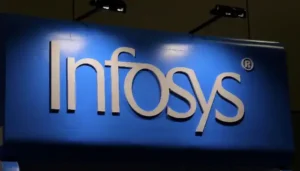In 2024, Infosys had 3.3% of its total workforce employed under the H-1B visa program, the highest among major Indian IT firms.
This figure, sourced from industry estimates by Jefferies, underscores the company’s continued reliance on U.S.-based skilled foreign workers to support its global delivery model.
While Tata Consultancy Services (TCS) had a lower H-1B share at 2.2%, Infosys’s exposure is more pronounced when viewed through both workforce and revenue lenses.
Infosys also led in revenue share derived from H-1B visa holders, with 11.5% of its U.S. earnings linked to employees on these visas.
This dual dependency—on talent and revenue—places Infosys in a more vulnerable position amid recent regulatory changes.
Visa Fee Hike Raises Economic Viability Concerns
The U.S. administration has decided to impose a $100,000 annual fee on new H-1B visa applications. This move has triggered widespread concern across the Indian IT sector.
For Infosys, the financial implications are particularly steep.
Analysts estimate that the fee could wipe out five to six years of profit per H-1B employee, given the typical six-year visa cap and average margins of 10% on U.S. billing rates.
Jefferies analyst Akshat Agarwal noted that the fee could lead to a 4–13% drag on profits for companies like Infosys, which have higher revenue intensity from H-1B workers.
The model, once cost-effective, now appears economically strained, prompting firms to reassess their talent strategies.
Infosys Shifting Talent Strategies: Local Hiring and Subcontracting
Infosys, like its peers, has been gradually reducing its dependency on H-1B visas over the past decade.
Between FY15 and FY24, the company experienced a 50–80% decline in approved H-1B petitions.
This shift reflects a broader industry trend toward local hiring, subcontracting, and nearshore delivery models.
Despite this shift, Infosys continues to maintain a significant onshore presence in the U.S. About 23.6% of its total workforce is currently based in client markets.
The company has invested in training centers and partnerships with community colleges. It has also supported green card sponsorships to build a more sustainable talent pipeline.
Note: We are also on WhatsApp, LinkedIn, and YouTube to get the latest news updates. Subscribe to our Channels. WhatsApp– Click Here, YouTube – Click Here, and LinkedIn– Click Here.



